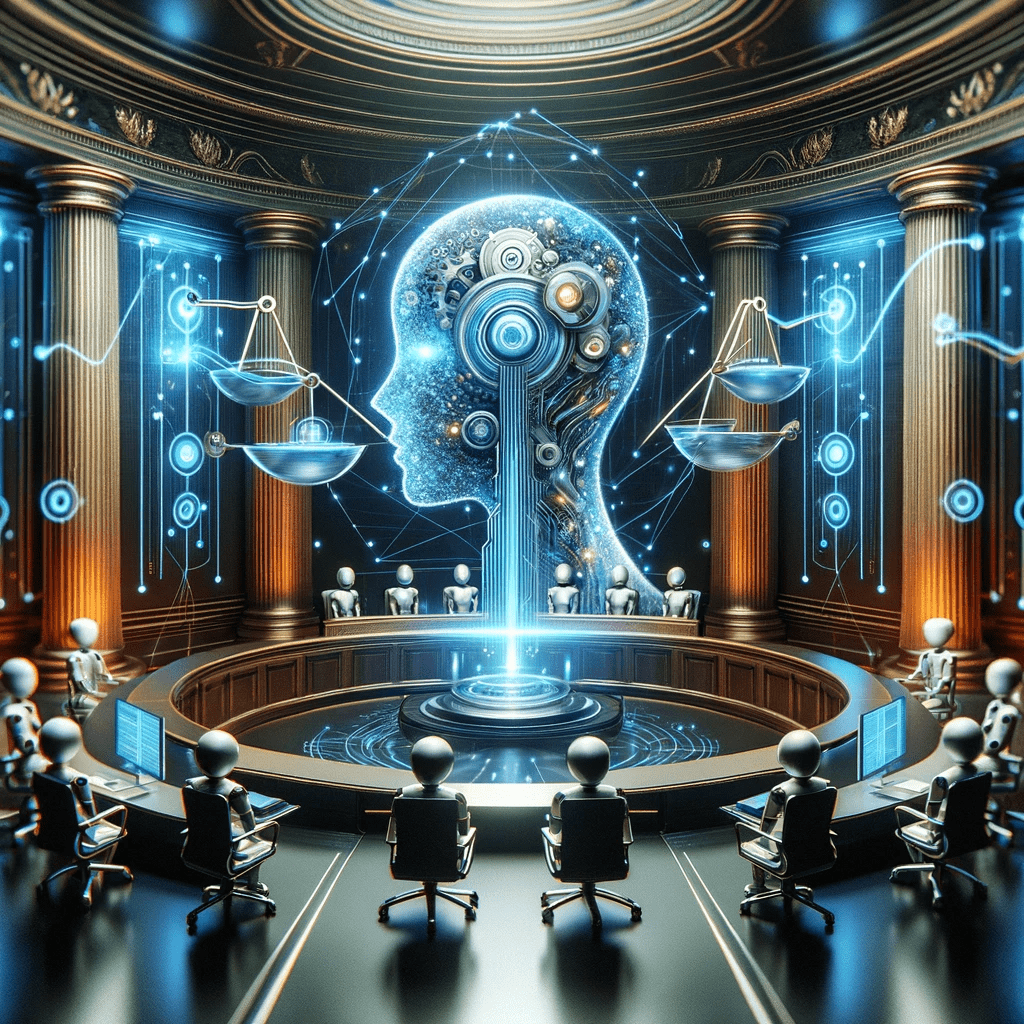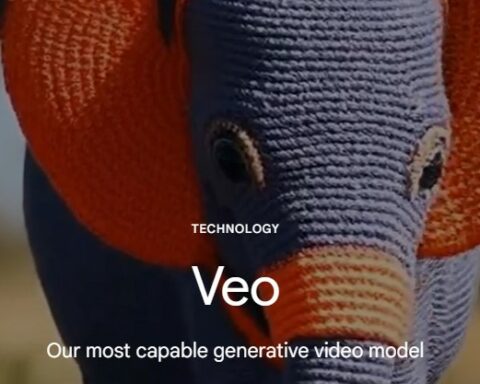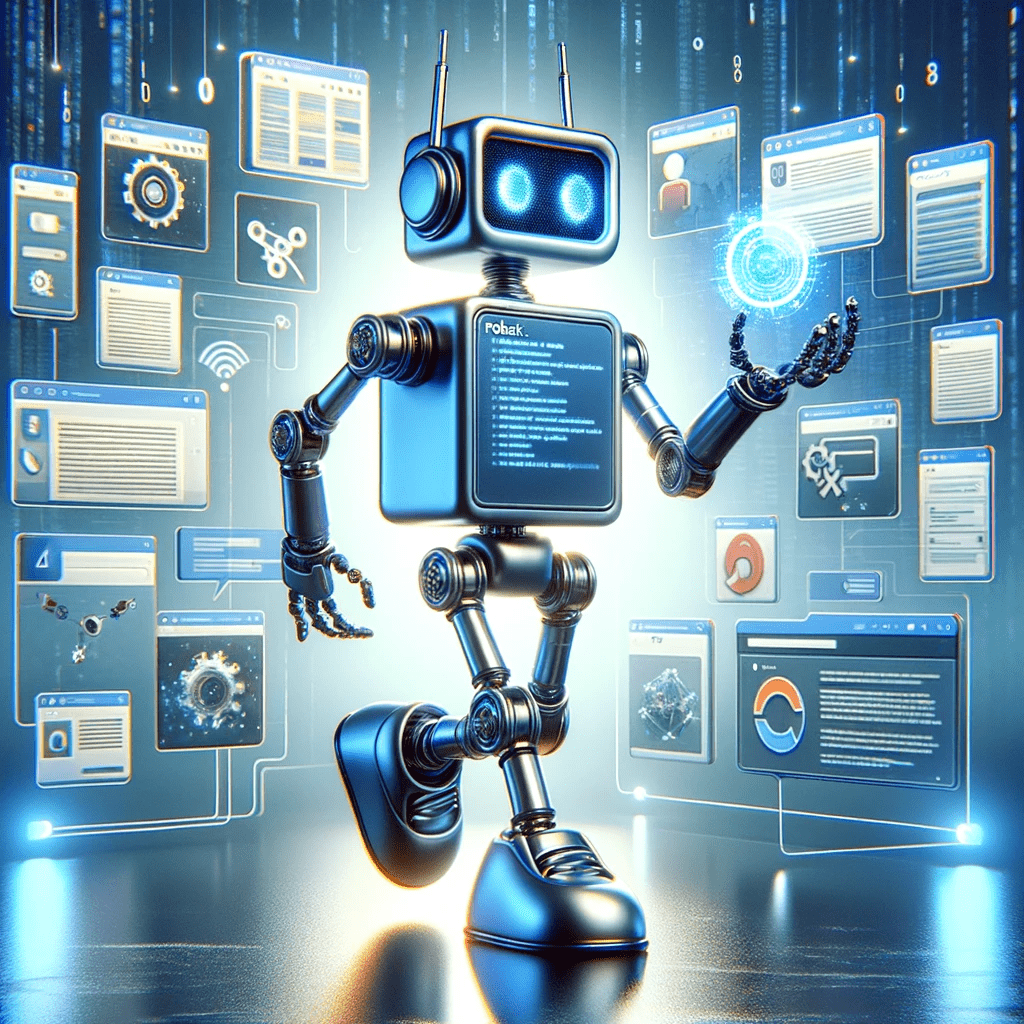Last Updated on January 2, 2024 4:46 pm by Laszlo Szabo / NowadAIs | Published on January 2, 2024 by Laszlo Szabo / NowadAIs
John Roberts on Artificial Intelligence: A Judicial Perspective on the AI Paradigm Shift – Key Notes
- AI’s Transformative Potential: Enhancing legal processes while preserving human judgment.
- Historical Technological Evolution: From typewriters to AI, technology has always been an aid, not a replacement in courtrooms.
- Ethical Considerations: Balancing AI’s efficiency with the need to protect privacy and humanize legal proceedings.
- Futuristic Judiciary Vision: An adaptive legal system that embraces AI’s benefits without compromising justice’s core principles.
Introduction: The AI Judicial Landscape
Chief Justice John Roberts’ perspective on artificial intelligence (AI) has significant implications for the legal system.
As AI becomes increasingly integrated into various sectors, including law, it prompts a reevaluation of traditional processes and roles. This article delves into John Roberts’ insights on AI, exploring its impact on the judiciary and broader legal practices.
AI in the Judiciary: A View from the Bench

Roberts acknowledges the transformative potential of AI in the legal system, citing its ability to streamline processes and enhance accessibility.
In his report, Roberts states,
“AI obviously has great potential to dramatically increase access to key information for lawyers and non-lawyers alike. But just as obviously, it risks invading privacy interests and dehumanizing the law.”
Furthermore, he adds,
“Machines cannot fully replace key actors in court. Judges, for example, measure the sincerity of a defendant’s allocution at sentencing. Nuance matters.”
However, he also cautions against the over-reliance on technology, emphasizing the irreplaceable value of human judgment and discretion in legal decisions.
Technological Evolution in Courtrooms
Chief Justice John Roberts 2023 Year-End Report details the historical progression of technology in the judiciary, from the introduction of typewriters and personal computers to the latest advancements in AI.
Roberts points out how these tools have reshaped the way courts operate, yet maintains that they supplement rather than supplant the human element in judicial proceedings.
Efficiency vs. Ethical Dilemmas
While AI promises efficiency and broader access to legal resources, it also presents ethical challenges. Roberts highlights the risks of privacy invasion and the potential dehumanization of law, underscoring the need for a balanced approach in integrating AI into legal practices.
The Future of AI in Law: Opportunities and Cautions
Looking ahead, Roberts envisions a judiciary that adapts and evolves with AI advancements. He stresses the importance of cautious implementation, ensuring that AI aids rather than undermines the core principles of justice and fairness.
Conclusion: Balancing Technology and Tradition
In conclusion, John Roberts’ views on AI in the legal system reflect a cautious yet optimistic outlook. As AI reshapes the landscape of law, it becomes imperative to maintain a balance between embracing technological advancements and preserving the fundamental human aspects of justice.
FAQs
- What is John Roberts’ perspective on AI in the legal system? John Roberts views AI as a transformative tool that can enhance legal processes but cautions against its over-reliance.
- How does AI impact the judiciary, according to Roberts? AI increases access to information but raises concerns about privacy and the dehumanization of law.
- What are the ethical dilemmas of AI in law? AI’s ethical challenges include privacy invasion and the potential loss of human nuance in legal judgments.
- How has technology historically impacted courtrooms? Technological advancements, from typewriters to AI, have reshaped court operations, supplementing but not replacing human elements.
- What is Roberts’ vision for the future of AI in law? Roberts envisions a judiciary that adapts to AI while ensuring it supports justice and fairness.










